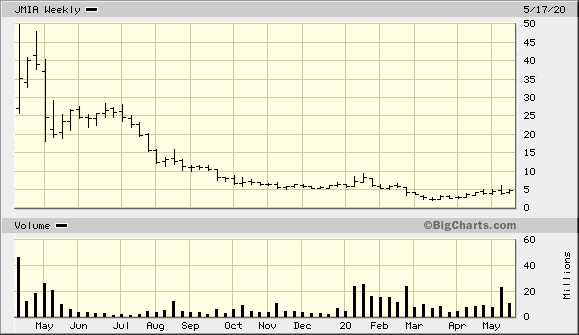Which continent is #1 in the world for mobile payments?
Africa!
This is just one of the little-known facts about Africa's growing tech sector.
Why would anyone be surprised, though? Entry-level smartphones are now just USD 40. For USD 110, you get a mid-tier smartphone. Price deflation has put technology within a price range that is now affordable for many African consumers.
Over 500m Africans are already connected to the Internet. Almost everyone in Africa who can afford it now owns a mobile phone, and most aspire to upgrade to the best smartphone they can afford.
It makes for an incredibly large opportunity for entrepreneurs. There are now 700m Africans with disposable income. That's a consumer market the size of and Western Europe and the US combined (based on headcount). Purchasing power per capita is rising, too. During the past decade, seven of the 15 fastest-growing economies in the world were in sub-Saharan Africa.
Given such figures, is now the time for investors to look at African tech companies?
Tech is taking hold in Africa
Needless to say, Africa isn't anywhere near as advanced when it comes to tech and Internet use as Western Europe, North America, or parts of Asia.
However, there are already examples that show just how quickly a new tech trend can take hold across the mega-size continent once conditions are right.
For example, conventional banking services had long been out of reach for most Africans. A decade ago, only one out of ten Africans had a bank account and economies were almost exclusively based on cash. Conventional banks were too expensive, or geographically out of reach for those who didn't live in urban areas.
Fast forward to 2019, and 40% of the continent's now 1.3bn people can make payments through their mobile phone. The percentage of the economy that is paid for through mobile payments is higher than in China – a country where everyone pays for anything with their mobile phone.
Mobile phone technology solved the problem of the un-banked Africans, and it did so in the space of just a few years.
As ever, those with sufficient foresight benefit tremendously. The owners of these mobile phone payment networks are now making a fortune in Africa. In part 1 and part 2 of this series, I already described a few of Africa's defining features to you:
- Much higher profit margins than elsewhere in the world.
- Less risk of new competitors eating into your market share, because venture capital is still in its infancy.
- 54 countries you can expand into.
Tech companies in Africa are not yet a subject that many investors are familiar with or even interested in. But that's the point. It's all about getting in early. Imagine having put money into Amazon back in the late 1990s, when many still laughed about Jeff Bezos' idea to eventually operate the world's biggest store.
Similar opportunities exist in Africa, and more of them will become available to investors over the coming years. It's a market that I'd keep an eye on if I were you.
Jumia – a ground-floor opportunity of e-commerce in Africa
Sticking to the example of Amazon, consider the following:
Today, less than 1% of African's consumer purchases are made online.
That compares to 15% in the US, and a whopping 36% in China.
E-commerce, as we know it, with swift deliveries and an endless array of products, is not yet something that African consumers can enjoy.
That said, who wouldn't like to choose from millions of products online and have them delivered home? Online shopping will appeal to humans anywhere, once it's available.
One company has set out to make it happen for African consumers.
Jumia AG is a German company founded in 2012, which aims to build an online marketplace to connect African buyers and sellers of goods. It is entirely unapologetic about the fact that it wants to plagiarise what Jeff Bezos had created for North America and Europe.
The company went public last year, raising USD 195m of additional funding. No doubt, many subscribers of the IPO will have seen the projections published by McKinsey: by 2025, products worth USD 75bn are estimated to be sold to African consumers through the Internet every year. That would be 10% of the retail sales of the continent's largest economies, or a tenfold growth compared to today.
At first glance, it appeared like an investment worth latching onto.
Unicorn status and ambitions to match
Jumia managed to become Africa's first "unicorn" (a tech company valued at >USD1bn).
The following should impressive anyone:
- Establish an Amazon-style operation in 14 African countries, with 40m available products and 6m active users.
- Sign up a plethora of institutional investors, including Goldman Sachs with a USD 245m investment.
- Pull off an IPO on the New York Stock Exchange.
Check out the Jumia website for Nigerian consumers. It does look like Amazon. If I lived in Africa, I'd probably be inclined to use them for convenience.
Copying what has already been successfully implemented in the US market is not a bad strategy. There are countless examples of entrepreneurs who took a concept from a successful US start-up and built their own company elsewhere in the world and incorporating local peculiarities.
After Jumia placed shares at a price of USD 14.50, the stock rocketed to USD 50. At its peak, the company was worth USD 3bn.
Then, however, things took a turn for the worse. And quite quickly so.

The fortunes of Jumia's shareholders reversed rather dramatically.
The stock is now a turnaround speculation
One year after its IPO, Jumia's fortunes have gone into reverse:
- Since its all-time high a year ago, the stock has lost 90%.
- Shareholders have learned about a seemingly never-ending array of operational problems, such as a spectacularly high product return rate.
- Cash has started to run worryingly low.
The trouble didn't stop there. Within three months of its IPO, a group of short-sellers publicly accused Jumia of cooking the books and pulling the wool over its shareholders' eyes. The management, of course, refutes these allegations.
Followings its peak valuation of USD 3bn, Jumia is now worth just USD 380m. It currently has net cash reserves of USD 208m, meaning the operative business is valued at only USD 172m.
Was all this predictable?
Might Jumia be worth buying into as a turnaround investment?
I analysed it for you, and wanted to let you in on how I arrived at my ultimate conclusion.
Before making a call on Jumia's potential to turn the corner, here are a few lessons you can keep in mind for other investment cases, too.
The red flags that should have prevented you from investing in Jumia's IPO
It's easy to judge with the benefit of hindsight.
Though there were indeed a few warning signals that should have made investors cautious when Jumia shares were pitched at them.
Warning signal #1:
Always check for "Management 101"
One of the basic rules when managing a start-up is: "Go deep, then go wide." First, you establish a rock-solid operation in one country. Then you expand into the next country. One challenge at a time.
Every good venture capitalist will tell you that, or you can learn about it from the countless books that are available on the subject. I also wrote about it once on my personal website, where I cover topics such as entrepreneurship or fundraising.
Jumia set out to establish a complex operation in what remains the most difficult to operate in continent. Large parts of Africa don't have a paved road system, never mind street addresses or established, reliable delivery services.
Creating the equivalent of Amazon would have been challenging to pull off in ONE country, least of all in 14 (!) countries simultaneously.
I would have only invested had Jumia successfully established itself in one country first.
Keep that rule in mind the next time you analyse an early-stage company.
Warning signal #2:
Wishy-washy reporting
Within about 60 seconds of checking its website, I spotted the first figure that made all alarm bells go off.
Jumia praises itself for having "1 transaction or lead every 2 seconds".
Why is this a warning sign?
A "lead" is an entirely meaningless figure. To illustrate the point, a department store could call anyone who walks past its building and looks at the shop window a "lead". It means nothing.
The way Jumia put it, they were visibly desperate to make themselves sound bigger than they were. By conflating "transactions" with "leads", the sentence loses all meaning.
It also shows a lack of integrity and disrespect for the reader's intellect.
Had this been a strong business, they would have simply said: "1 transaction every X seconds."
If they try to mislead investors with baloney figures, what else are they hiding?
Once you have spent a few years looking at companies, you spot these tricks pretty quickly.
Warning signal #3:
The track record of its lead investor
Jumia received backing from Rocket Internet, a German investment holding. Rocket Internet invests in start-ups and actively helps turn them into a "rocket" (it's all in the name).
Rocket Internet has a long history for pursuing a model based on:
- Copying business models that other companies have successfully implemented elsewhere in the world.
- Throwing a lot of cash at its founders to help them expand rapidly.
- Launching the company on the stock market as "the next big thing".
Some of the companies backed by Rocket Internet were incredible success stories - such as Zalando (ISINDE000ZAL1111) and HelloFresh (ISIN DE000A161408), which both became stellar investments after their IPO.
However, Rocket Internet has also gained a reputation for regularly trying to take investors for a ride. Among my network of German investors, most wouldn't touch companies that are IPO'ed by Rocket Internet.
Here is one objective measure to look at. The shares of the mothership haven't exactly performed well. During the past five years – when anything Internet-related boomed – the stock of Rocket Internet went sideways.
On balance, I would not rate Rocket Internet as a player I'd want to follow. One should have given Jumia a pass based on that alone.
What's next after Jumia?
I've looked at Jumia in quite some detail as part of my search for investment opportunities in the emerging African tech sector. Jumia caught my attention as it reminded me of "South America's version of Amazon" which I featured in a Weekly Dispatch in January 2019, and whose stock has since risen 142%.
However, even at Jumia's bombed-out valuation, I'd give it a pass. The company will probably need a lot more funding if it is ever to make its plans work out. At the very least, raising all these additional funds will be highly dilutive for shareholders. Right now, I'd also think that bankruptcy is a real threat to the company (and its shareholders). Never mind the suspected lack of integrity of its management.
However, that doesn't mean there wouldn't be serious opportunities for investing in the growth of tech in Africa.
In the end, I did find one company that ticked all the boxes. It falls into the category of: "When everyone is digging for gold, sell shovels."
For as long as more African will want to use the Internet and mobile phone services, this company is likely to keep growing. It is one of just three companies in Africa that provide a vital (and mostly invisible) backbone-service to keep the mobile network and the Internet running. It has a ten-year track record of successfully and reliably operating its business, and all five of the continent's largest mobile phone companies are among its customers.
Having looked high and low for suitable companies, this is the one I am excited about. Not the least because I feel its downside is fairly limited, while also offering a massive upside. It's a stock you might want to tuck away for the 2020s, to let it compound.
I have just finished a 56-page report that analyses this company in detail.
This report will go out to Undervalued-Shares Members later today. If you'd like to read it, Membership is just USD 49 a year, and it also gives you access to all my previous research reports (plus my ten best investment ideas over the coming year!).
Africa is early in its cycle of development, but that's where the opportunity lies. This three-part series will not be the last time you'll hear from me about Africa. There are plenty of opportunities out there!
Blog series: Investing in Africa
There's more to "Investing in Africa" than this Weekly Dispatch. Check out my other articles of this three-part blog series.
Did you find this article useful and enjoyable? If you want to read my next articles right when they come out, please sign up to my email list.
Share this post:
How can YOU tap into Africa's growth investment opportunities?
Most investors are massively underestimating Africa's potential for growth investment opportunities. Don't be among them.
Some truly exciting ground-floor opportunities await. I'm disclosing one of them in my latest research report for Undervalued-Shares.com Members, out today.
Sign up now to unlock it!
Discover my favourite African growth investment candidates - for just USD 49.
That's the price of my Annual Membership, which will also give you:
- 10 extensive research reports per year
- Archive with all past research reports
- Updates on previous research reports
- 2 special publications per year
You won't find better value for money anywhere else...








